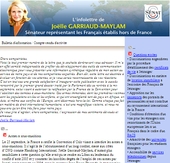Article publié par Investigate Europe le 5 décembre 2017 :
On May 20, Investigate Europe’s French correspondent Leïla Miñano published in national weekly Marianne her piece on how Microsoft locks in the French administration. The article featured a confidential letter, leaked indirectly by a source from the French Defence ministry, showing officials had no inclination to subject public IT contracts to public tender.
According to the letter, an IT contract originally signed in 2009 by the Defence Ministry with Microsoft was renewed for the third time on the 21st of May 2017 for the next 4 years (2017-2021).
Another internal document Investigate Europe brought to light in France revealed that this last contract, named “Windows III”, was signed for 120 million EUR.
The French public procurement register, “les “journaux officiels”, did not feature Microsoft-related contracts that amount to the contract’s value.
We asked the French Defence Ministry to clarify why and how the firm was contracted outside the competition a public procurement process brings. Defence officials preferred not to comment.
IE investigations prompts contracting scrutiny
Two days after Marianne released our story, Les Republicains senator Joelle Garriaud-Maylam, a French right wing politician, picked up on Investigate Europe’s reporting and filed a written question to the Defence minister, asking details about how Microsoft services have been solicited.
When a Member of the French parliament or senate submits a written question, the executive has the obligation to answer. Unlike when the press asks.
Maylam, who is also the secretary of the parliamentary Defence Commission, asked whether the contract was renewed surreptitiously, instead of asking the IT giant to queue for public tendering. She also wanted to know what had happened to the public tendering of the department’s IT services. In raising these issues, Maylam questioned the ministry’s decision to hire Microsoft’s Irish subsidiaries, a move that saves the corporation tax fees.
Maylam filed her questions on May 23rd. Deafening silence followed. She asked once more, on the 13th of July, repeating that “the offense of favouritism” should be punished under the penal law.
Eventually, The French ministry’s answer came at the end of August, stating that the contract was renewed, with the new start date on the 1st of June 2017.
In effect, the French Defence department kept calm and carried on signing away public IT services to Microsoft, as the senator tried prodding into transparency and competition issues raised by Investigate Europe’s investigation.
Tacit preferential treatment
Defence officials did not disclose the sum Microsoft services were contracted for, or why public procurement was not a good idea. All they said was that the Government Procurement Commission passed a favourable opinion “on this contract”.
The commission was consulted about France’s contracts for Microsoft from 2009 and 2013. So, instead of going through a public competition, the ministry asked the body in charge of the country’s state procurement to tick the contract’s legality checkbox.
The commission said that by-passing public competition was fine because Microsoft was the only company who could provide this type of service.
Actually in 2008, the general rapporteur of this commission, Pierre Rozen, opposed this contract, describing an “opaque” process, and wrote it in its final confidential report released by Le Nouvel Observateur in 2013.
In an interview with Investigate Europe, Rozen described Microsoft’s by-passing public tender as “illegal”:
“It was illegal at that time, I don’t see why it wouldn’t be today! They asked me to validate a political decision which was coming from a ministerial cabinet. I refused, they didn’t listen.”
The Government Procurement Commission was dissolved on May 23rd of this year. The reason has probably nothing to do with the Microsoft contracts. But because the commission was used not only by several departments, it may mean that the transparent competition may be outdated under the new administration.
Maybe in the case of “Windows III”, the French Defence ministry used another commission. Or maybe it relied on the former commission’s “favourable opinion”. Or passed it in an irregular manner altogether. Who knows?!
A few days ago, on October 16, the diligent senator filed an official request for a commission-led inquiry that would look into not only the last contract, but for all three of them (2009-2013, 2013-2017, 2017-2021).
How would an inquiry into alleged public IT contracting misbehaviour look?
If the French senate sees the point of such an inquiry, a group of 21 senators (from different parties) will investigate the legality of granting public contracts by avoiding public procurement.
One of the seven permanent commissions must validate this newly formed commission.
The 21 senators then have six months to conduct the inquiry and publish a public report. They can question almost anyone, even ministers, and may access whichever documents they may see fit. This may explain why the establishment of such a commission is not everyday business (59 since 1959).
Les Republicains, the party of Joelle Garriaud-Maylam, holds the majority of seats in the senate. Digging deeper into the three contracts would challenge the responsibility of the administration of her own party, in power in 2009, of the socialist party in power in 2013 and 2017.
Even the current minister of Foreign Affairs Jean-Yves Le Drian, who was Defence minister in the Holland government before joining Macron’s party, could be challenged.
In short, approving a public inquiry into Microsoft’s contracting may ruffle feathers. But we would hear a lot of clatter on the issue.
It is also a significant development for open software groups, in particular for “APRIL”, a campaigning group that advocates for free software. APRIL has been asking for a public inquiry into IT services contracting since 2016.
The French government has refused to comment on Investigate Europe’s findings. There is very little chance for the inquiry commission to be set up, parliamentary sources told IE.





